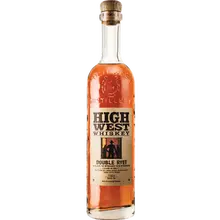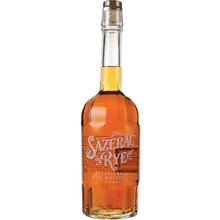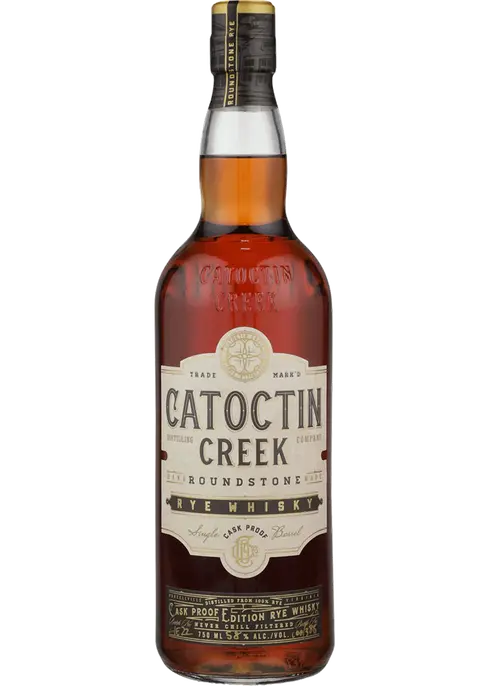Whiskey 201: Bourbon or Rye?
- Joe

- Sep 28, 2020
- 3 min read
Updated: Feb 20, 2025
Doing the Whiskey100s was fun, for me to write and hopefully you to read, and it's now time to expand on them. After some deliberation I decided to start two series, one on American whiskey (200s) and the other on Scotch whisky (300s). One won't be completed before the other and there'll be some switching off. Let's get started!
Through this time writing and learning more about American whiskey, I've realized a pretty important part's been neglected. American whiskey is more than just Bourbon and, though it's certainly less popular at the moment, Rye whiskey needs recognition as well. This happened because my own appreciation for Rye has been recent and late developing. Today we'll rectify all that with background, comparisons to Bourbon and recommendations.

In early America it was predominantly Rye whiskey being consumed, not Bourbon. Commonly produced in western Pennsylvania and elsewhere, it would've been the excise tax on Rye whiskey that primarily led to the Whiskey Rebellion during Washington's presidency. Washington himself produced a great deal of Rye whiskey. It remained the preeminent American spirit until Prohibition. After the 21st Amendment and repeal it was the Bourbon makers, mostly in Kentucky, that took over the market. Rye since stayed a lesser selling product though it's definitely seeing a renaissance with the current worldwide whiskey craze. As such, there are an increasing number of options these days.
What defines 'Rye whiskey?' The specifications are very similar to Bourbon (as seen in 101) with one key difference. Instead of corn, the grain making up the mashbill must be at least 51% rye. Both Bourbon and Rye whiskey typically use a mix of corn, rye and malted barley (some Bourbons also use wheat), so it's just the ratios that change. They also have the same max ABV for distillation (80%) and the beginning of aging in new charred oak barrels (62.5%). Neither technically has a minimum time requirement for aging, though to be labeled as 'straight' it must be at least two years and meet other guidelines. Both need to be bottled at a minimum of 40% ABV. So yeah, different grain but otherwise same rules. Obviously these are the rules in the U.S., as Canadian 'Rye whisky' is quite different and we'll leave it at that.
The result of using a different grain is a significantly different flavor. While Bourbon has varying degrees of sugary sweetness, often with caramel and vanilla, Rye is drier and spicier (frequently like black pepper) and can be a bit fruity. These are the most straightforward and tell-tale characteristics, but a Rye can still be sweet and a Bourbon peppery. The actual mixture of flavors is largely determined by the proportions of grains distilled.
The biggest advantage of Rye whiskeys is use in cocktails. That dry and spicy profile makes a fantastic backbone to mixed drinks, and classics like the Manhattan, Old Fashioned and Whiskey Sour were all originally made, pre-Prohibition, with Rye. Due to the Millennial obsession with doing things the old way you'll often see Rye versions of these cocktails at fashionable bars and speakeasies. I personally think a Manhattan should always use Rye. Of course, many Ryes are more than good enough to drink neat as well.
Before wrapping up, I'll make some recommendations too. These probably should've gone into the starting point whiskey recommendations piece, but better late than never.
Rye
Once again the goal is to keep prices below or right at ~$30 per 750ml (standard size) bottle.
1. Old Overholt Straight Rye
$14-17
80 proof
Jim Beam distillery in Kentucky (originally made in West Overton, PA)
Oldest continually produced whiskey in the US, super cheap and available everywhere, I wouldn't drink this neat but it gets the job done for cocktails
2. Rittenhouse BiB Straight Rye
$23-27
100 proof
Heaven Hill distillery in Kentucky
Terrific value and easy to find, in Monongahela (PA) style, great for cocktails or sipping
3. High West Double Rye!
$27-32
92 proof
High West distillery in Utah
Combo of two contrasting whiskies, delectably spicy and versatile, see it everywhere
4. Sazerac Straight Rye
$26-30
90 proof
Buffalo Trace distillery in Kentucky
Harder to find but usually well priced, both rye and cocktail symbolize New Orleans
5. Catoctin Creek Roundstone Rye
$33-38
80 proof
Catoctin Creek distillery in Virginia (~an hour from my house)
Homer pick that's likely cheaper here than elsewhere, nevertheless a solid whiskey
Two others I want to try but haven't gotten to yet are Knob Creek Rye and Old Forester Rye. Both are <$30 100 proof straight Ryes and I'd expect them to join the group above of quality and inexpensive whiskeys. If looking for something more premium, WhistlePig 10 is fantastic.
That'll have to do for now. Cheers!










Comments